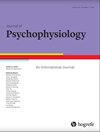The Impact of Pain on Subsequent Effort and Cognitive Performance
IF 0.9
4区 心理学
Q4 NEUROSCIENCES
引用次数: 6
Abstract
Abstract: Theoretical accounts of pain and empirical evidence indicate that pain and cognitive control share common neurocognitive processes. Numerous studies have examined the interactions between pain and cognitive performance when they occur simultaneously, typically showing analgesic effects on task performance and impaired performance due to pain. However, the sequential impact of pain on cognitive control and effort remains less clear. This study investigated the influence of a first task, including painful vs. non-painful thermal stimuli, on effort-related cardiac response and performance in a subsequent moderately difficult cognitive task. Drawing on the hypothesis that experiencing pain should recruit cognitive resources (such as attention and working memory) and reduce perceived ability, we predicted lower task performance and/or stronger compensatory effort in the subsequent cognitive task after the painful than after the non-painful first task. Results support our predictions regarding the effect of pain on subsequent cognitive performance, which was moderately lower after the painful task. However, such a decrease in task proficiency was not associated with a comparable decrease in perceived capacity or increase in effort-related cardiac reactivity. Nevertheless, further correlational analyses indicated that effort and perceived capacity were significantly related to pain ratings. Moderate pain was associated with stronger effort during the cognitive task, whereas high pain led to disengagement, that is, a low effort. Moreover, in line with our predictions, higher pain ratings were associated with a lower self-reported capacity to perform the cognitive task. We discuss these findings regarding the relationship between effort and performance, the impact of fatigue on motivation, and interindividual variability in these after-effects.疼痛对后续努力和认知表现的影响
摘要:疼痛的理论解释和经验证据表明,疼痛和认知控制具有共同的神经认知过程。许多研究已经研究了疼痛和认知表现之间的相互作用,当它们同时发生时,通常显示疼痛对任务表现和因疼痛而受损的表现有镇痛作用。然而,疼痛对认知控制和努力的连续影响仍然不太清楚。本研究调查了第一项任务(包括疼痛和非疼痛热刺激)对随后中等难度认知任务中与努力相关的心脏反应和表现的影响。基于经历疼痛会调动认知资源(如注意力和工作记忆)并降低感知能力的假设,我们预测在疼痛之后的后续认知任务中,与非疼痛的第一个任务相比,任务表现更低和/或更强的代偿努力。结果支持了我们关于疼痛对随后的认知表现的影响的预测,在痛苦的任务之后,认知表现适度降低。然而,这种任务熟练程度的降低与感知能力的降低或与努力相关的心脏反应性的增加无关。然而,进一步的相关分析表明,努力和感知能力与疼痛等级显著相关。在认知任务中,中度疼痛与更强的努力有关,而高度疼痛导致脱离,即低努力。此外,与我们的预测一致,较高的疼痛评分与较低的自我报告能力有关,以执行认知任务。我们将讨论努力与表现之间的关系,疲劳对动机的影响,以及这些后效的个体差异。
本文章由计算机程序翻译,如有差异,请以英文原文为准。
求助全文
约1分钟内获得全文
求助全文
来源期刊

Journal of Psychophysiology
医学-神经科学
CiteScore
2.60
自引率
7.70%
发文量
25
审稿时长
>12 weeks
期刊介绍:
The Journal of Psychophysiology is an international periodical that presents original research in all fields employing psychophysiological measures on human subjects. Contributions are published from psychology, physiology, clinical psychology, psychiatry, neurosciences, and pharmacology. Communications on new psychophysiological methods are presented as well. Space is also allocated for letters to the editor and book reviews. Occasional special issues are devoted to important current issues in psychophysiology.
 求助内容:
求助内容: 应助结果提醒方式:
应助结果提醒方式:


